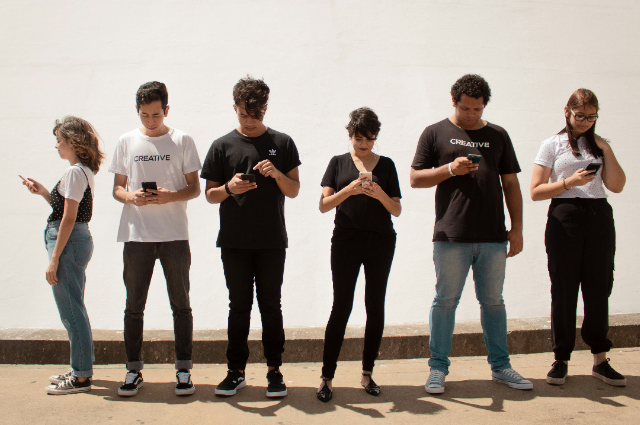
Photo by Creative Christians on Unsplash
In the modern era, social media can be deemed as one of the crucial aspects of life. Billions of people use social media, revolutionizing how people communicate, distribute information and relate to one another. The rapid growth of social media networks, including Facebook, Instagram, Twitter, and LinkedIn, has allowed people to access an unprecedented range of communication opportunities, making it easier to communicate with people worldwide. Social media has also been quite integral to the development of communities, allowing users that share their interests, beliefs, or goals to easily meet, work or support each other online. This article reviews the diverse aspects of social media in improving interaction and building communities.
Revolutionizing Communication
Breaking Geographical Barriers
One of the most critical impacts of social media lies in the way it has been capable of breaking down geographical barriers. So, people can relate to each other and share ideas, experiences, and information instantly irrespective of geographical distance. For example, a student in India can work on a research project with his peers in Canada using social media networks such as Slack or Zoom.
Real-Time Information Sharing
Social media changed the way that information is sent and received. News, updates, and even alerts are now released in real-time. Twitter and Instagram have emerged as essential vehicles for breaking news, keeping up with the globe as it occurs. This real-time ability also gave grassroots movements and citizen journalists a voice by which to freely express their raw opinions.
Bettering Personal and Professional Relationships
Social media bridges personal and professional space. For example, LinkedIn offers professionals a network to seek employment opportunities and exchange industry information. Just like WhatsApp and Messenger, the social media also allows families and friends to maintain their relationships irrespective of the physical distance between them. These social media tools foster deeper relationships since they allow continuous communication.
Community Building
Developing Common Interests
Social media provides an avenue for social aggregation; thus, enabling like-minded persons to gather over issues of concern. For example, there's the Facebook community of amateur photographers, or in Reddit, such subreddits that unite people campaigning on climate change issues. That said, communities driven by hobbies or professional interests/activism often foster a connection that gives sense of belongingness.
Giving Voice to the Marginalized
For ages, marginalized groups had struggled to find voices for their complaints. Social media has changed that narrative by democratizing access to audiences. #BlackLivesMatter and #MeToo, for instance, have gained a global following by using platforms such as Twitter and Instagram to amplify issues of racial injustice and gender inequality. Movements like these demonstrate the might of social media in driving social change.
Promoting Local and Global Causes
Social media has become the essential tool for activism from raising funds to creating awareness drives. People use GoFundMe and Instagram Stories to raise money for causes that range from disaster relief to medical expenses. This capability not only serves people in need but also inspires a global citizenry and solidarity.
Challenges of Social Media
Misinformation and Fake News
Despite its benefits, social media has its weaknesses. The spread of misinformation and fake news at incredible speeds is one of the most significant challenges. False narratives can sway public opinion, derail democratic processes, and ignite social unrest. For example, during the COVID-19 pandemic, conspiracy theories and misinformation about the virus and vaccines spread through social media, weakening efforts to improve public health.
Privacy Concerns
With the sharing of personal information online, privacy has become a critical issue. Data breaches and unauthorized use of personal information by companies or malicious actors erode trust in social media platforms. The Cambridge Analytica scandal is a stark reminder of how user data can be exploited for political and commercial gains.
Mental Health Impacts
Overuse of social media can have severe impacts on mental health. Studies have shown that long hours of screen time and social media use are associated with increased anxiety, depression, and feelings of inadequacy. The curated content on platforms such as Instagram tends to create unrealistic comparisons and distorted reality, mainly among the youth.
The Future of Social Media
Advancements in Technology
The emerging technologies of AI, AR, and VR will redefining social media. AI-powered algorithms can improve user experience through personalization of content, and AR/VR can deliver immersive environments for social interaction. For instance, a concept called a metaverse, which is currently under development by Meta (what was Facebook), would allow users to maintain virtual spaces for social interaction, work, and play.
Strengthening Regulations
To address the challenges associated with social media, stronger regulations are being implemented worldwide. Governments and organizations are collaborating to curb misinformation, protect user privacy, and promote ethical usage. Initiatives like the European Union’s General Data Protection Regulation (GDPR) set a precedent for safeguarding digital rights.
Encouraging Digital Literacy
Digital literacy must be promoted so that users use social media responsibly. Educational programs, which can help teach critical thinking, fact-checking, and online etiquette, can empower the individual to use these platforms effectively. In this way, a culture of informed and respectful online interactions can mitigate the negative impacts of social media.
Conclusion
No doubt social media has revolutionized communication and community building. Its ability to connect people, amplify voices, and foster collaboration is unmatched. But the challenges need to be addressed so that such platforms remain as tools for good change. Technology will only grow, and with it, social media will become a vital factor in improving communication and building communities, thus forming the future of human interaction in ways profound enough.
